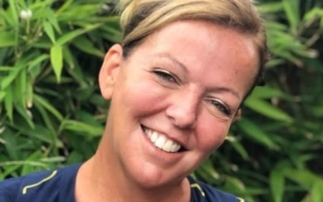TFT's Scott Poynton's new and free to download book argues the case for a fresh approach to solving social and environmental problems
Certification was designed to be part of the solution to the environmental and social problems facing the world. A great deal of very good, talented and committed people have struggled away for more than 20 years to improve the management of the planet's natural resources through certification systems. We applaud and honour those efforts but as we accelerate toward a 6°C climate change scenario, it's time to have a serious look at the tools we've been using to turn things around. Clearly, so far, they're not working. Indeed, certification has become part of the problem. Certification systems hold back the innovative change and reflection we desperately need to grapple with the great complexities threatening us today.
In 1994 the Forest Stewardship Council (FSC) emerged as the first roundtable certification scheme. The aim was to promote better management of the world's forests. It was to be achieved through collaboration between social and environmental NGOs and businesses. This model has been replicated many times. As of the start of the year there were 458 eco-labels in 25 industry sectors across 197 countries. Having had 20 years to be implemented it's time to assess the performance of certification. Can we honestly say it has delivered on its founding purpose?
If we are to analyse certification's bad points we must also recognise its positive aspects. It has brought many opposing parties together. It has a strong foundation in democratic principles. It has moved natural resource management in the right direction and helps consumers understand what goes into producing the things we all buy on a daily basis. But we can no longer gloss over the failures of certification. It's built on the principle that people cannot be trusted. Some would say that lack of trust is for good reason. But our future depends on our coming together to engage in some deep thinking to find innovative ways to solve the problems we face. They will not be solved any time soon in the box-ticking exercise of certification.
Without a strong connection to real values, company commitments to environmental and social responsibility will die on the vine when the challenges get tough and the need to adapt is critical. And the need to adapt is constant - a formula or one-size-fits-all solution cannot and will not help. Our members include some of the biggest companies in the world - brands like Ferrero and Mars, and some of the world's biggest palm oil producers like Wilmar. Many of our members are working towards certification and we support their work. Initially this may sound hypocritical, but the point is certification isn't the end of their efforts. Their journey is underpinned by their values, which are not limited by certification; indeed, they all go beyond the narrow confines imposed by certification systems. These values are connected to the company our members truly want to be and the change they want to see in the world.
One alternative model offered by Beyond Certification is called VT-TV - Values, Transparency, Transformation and Verification. TFT has been exploring and implementing this model with over 70 companies and industries around the world. These companies are transforming the story of the raw materials they use, including wood, palm oil, pulp and paper, stone, charcoal, soy, beef, sugar, dairy, rubber, coffee, and coconut. Mining companies are also exploring this approach, making decisions aligned with fundamental values and what they know to be right.
As a result, trust, hitherto unpalatable in the certification world, is emerging as those who had previously been on opposing sides awake to the importance and opportunity of working together. Land has been set aside for protection, workers' rights and conditions improved and long-standing conflicts have been resolved as people confront their legacies. The book does not claim that this VT-TV model is the only solution. Rather, it shows how new and seemingly radical thinking can catalyse positive change.
Beyond Certification creates debate, innovation and change. It assesses the following:
• The limits of round table certification, illustrated with real, practical examples.
• The intricacies of the change process - how companies move from destructive to more responsible practices.
• How to implement more holistic, economically effective, durable systems to better protect people and the environment.
Beyond Certification is part of the DōShorts Collection, a series of concise books on social and environmental-related matters. Download the free book here.
This article is part of BusinessGreen's Zero Deforestation Hub, hosted in association with APP.
BusinessGreen and APP will undertake a Twitter debate on how to make zero deforestation a reality at 2:30pm BST on Tuesday June 30th. Readers can join the debate alongside representatives from Greenpeace, The Forest Trust, Unilever and CDP.







